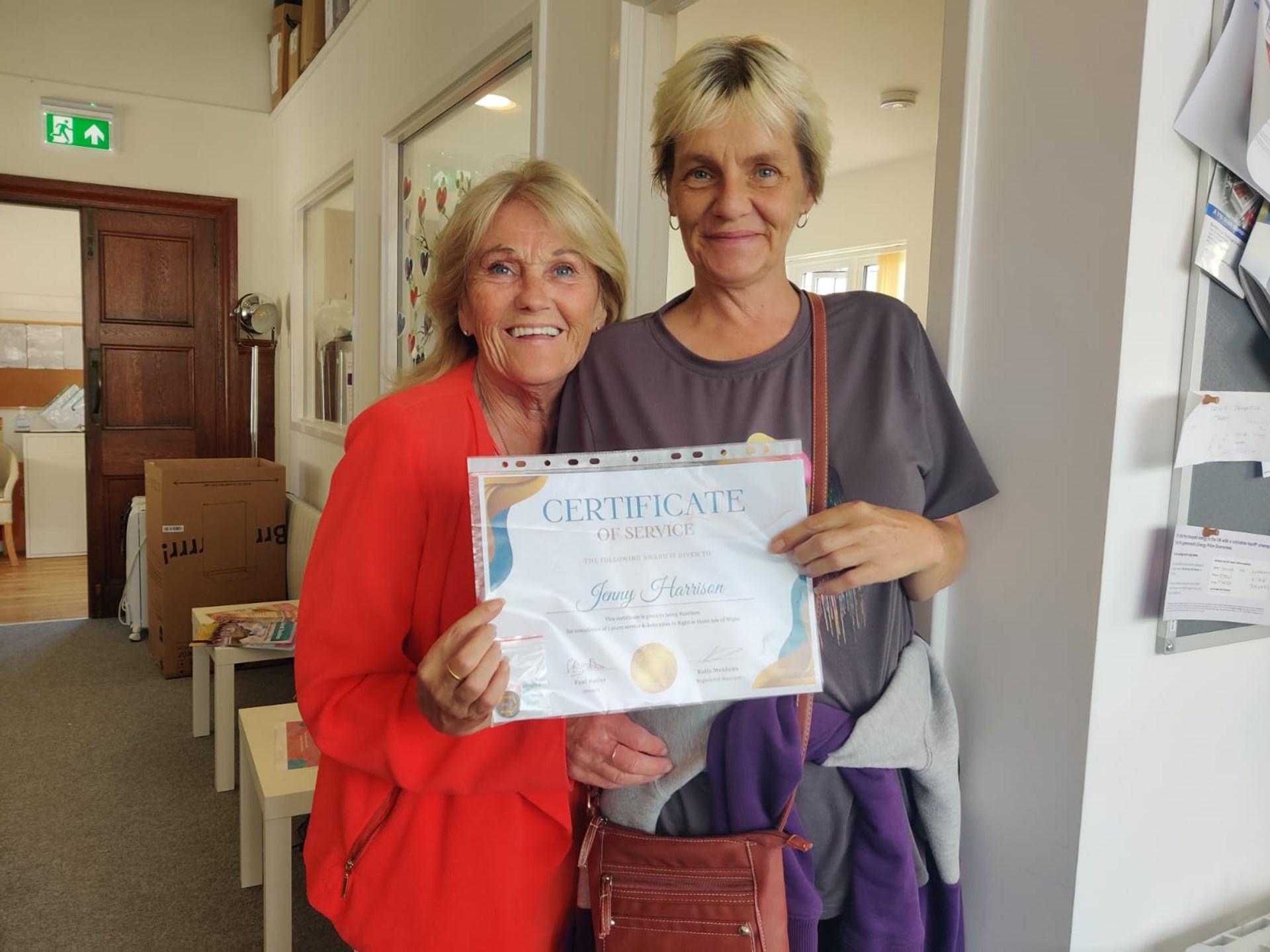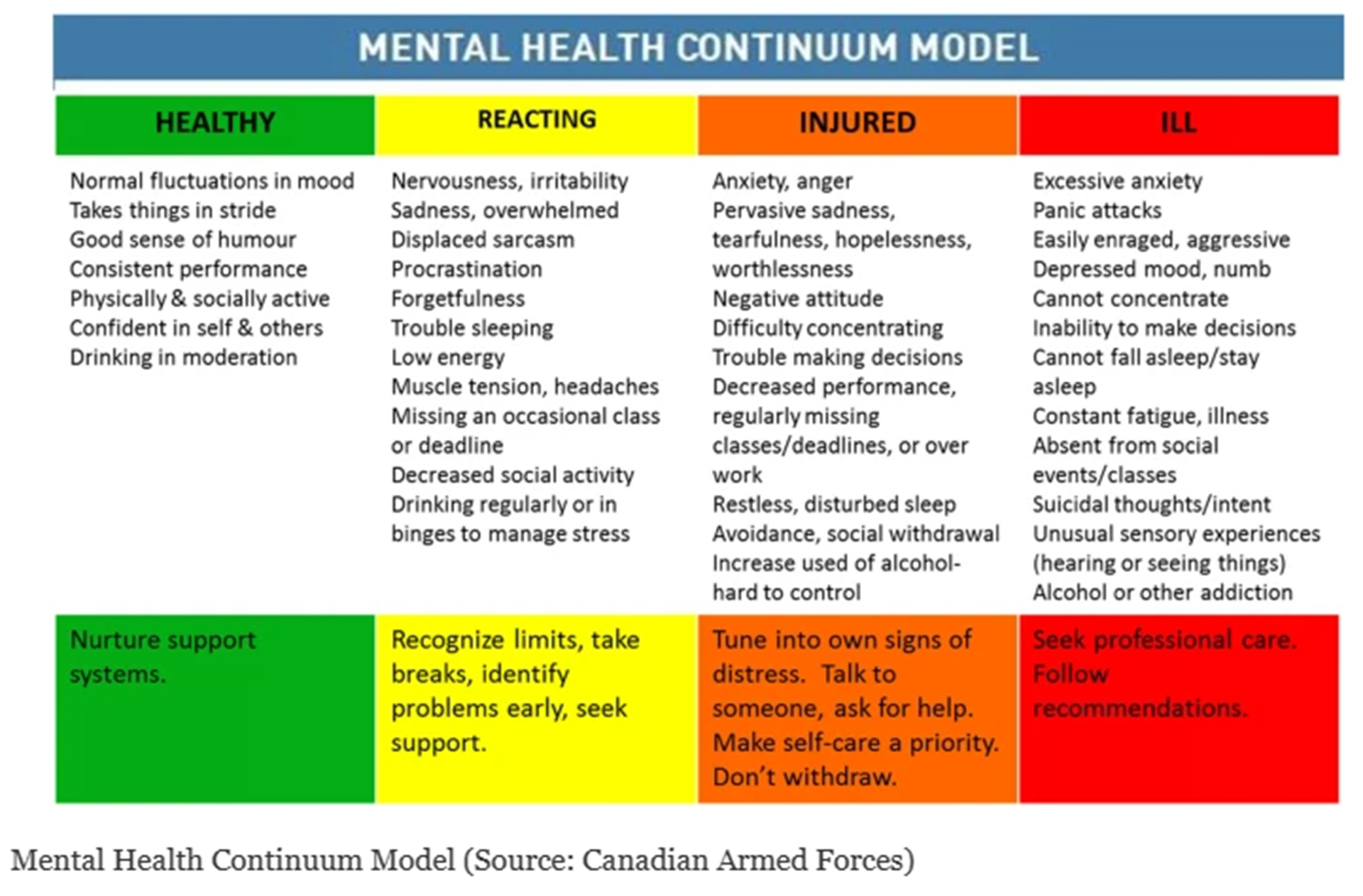
Mental Health Awareness Week
Published: 13/05/2024
Hi Jenny! It’s Mental Health Week, so let’s talk mental health
I’m good at talking about my mental health now.
I didn’t get the support from family when I was younger, instead I received negative feedback so I learnt to keep my feelings bottled up. I was taught it was my problem, not anyone else’s.
I’m at the beginning of level 2 NVQ Mental Health Awareness now. The training is giving me an awareness of the types of mental health and mental ill health.
There are differences?
There are differences, there is a continuum. One side is the Mental Health, sadness, nervousness and things that can be reversed. The other end is the Mental Ill Health, the suicidal thoughts, bipolar, schizophrenia, the mental ill health that requires intervention.
It means it varies the level of support the person needs.
Do your personal experiences of the need for Mental Health support influence your training now?
Yes. I have always been a good listener for those who want to talk, but never really had it reciprocated. My friends have said “I am here to talk” but they never were, it’s a way to get me off their back.
When I got seriously depressed, I didn’t go out, I became a hermit in my own home, my friends knew where I lived but never visited. There was the expectation I would go to them. I then lost my best friend and I didn’t have anyone. Men don’t get it so they’re useless.
I want to big Right at Home Isle of Wight up, I was depressed when I first started. But my depression started going, I was appreciated for who I am. When I had a stroke, I got a new lease of life.
I know my limits now and I don’t push it, but I do have to socialise and go out.
How is life now?
I am now a colour person. I used to wear grey, blue and black.. now I wear colour, I plan my outfit the day before.
I am going to get back to being brave and change the colour of my hair, I look at some elderly people and they have pink hair and I think “if they can do it, I can do it!” I want to go rainbow.
I would like to bring my training in to work. I already have told the girls I train that I am doing the course. I am letting them know that if they would like to talk that I am here and will keep it confidential (where possible). I can then direct them into the right place where they can receive the relevant support.
What are the steps to helping someone who asks for help?
I am not yet at that part of my training on how to give help in a professional setting, but from my personal experience, there are various ways in which to receive help. What has helped me is opening up and talking about what I’m going through.
All I needed from my parents was for them to listen to what I was saying and not judge who I was. I always got negative attention, even if I did something good, I got a negative comment. So, I ended up being a naughty child – smoking, drinking, going out late… it got me attention.
I’ve stopped chasing friends and family who don’t want to know. Sometimes it takes an event to realise which friends are sticking around.
Chat with the person who is asking for help, encourage them to talk, I would let them know I am here. A lot of people don’t want to reach out and get that extra help like calling the Dr to tell them you’re depressed, or calling to get a therapy appointment. It’s important to support them through that, I would make the phone call if they wanted.
Mind are pushing for support to be accessible to everyone who needs it. That's why we are talking more directly about it this week. Any thoughts about this?
In this day and age, there aren’t many therapists available for help and unfortunately, there isn’t many services about. It makes you think when doing this training, that I could help more people. Being open to have people come to me for a chat and lead them in the right direction. There are many other ways to access help such as going online, calling Samaritans, using text services or Safe Havens.
I know quite a few people have done this training, whether its to help others or help themselves. I did it to be open to others.
At the end of the day, we all have some form of mental health issues. You can look at someone and assume their okay, but deep down they could be struggling. They might not talk but you can pick up cues.
A lot of our clients open up about how they feel about life too, it’s our job to try and lift them up. We are here to help.



If you need help:
-
call Samaritans on 116 123 (UK-wide)
-
text SHOUT to 85258 (UK-wide)
-
call C.A.L.L. on 0800 132 737 (Wales only)
-
call SANEline on 0300 304 7000 (4.30pm–10pm every day)
-
call Papyrus HOPELINEUK on 0800 068 4141 (24 hours, 7 days a week), email pat@papyrus-uk.org or text 07786 209 697
These services are for anyone who's struggling.
They won't judge you.
